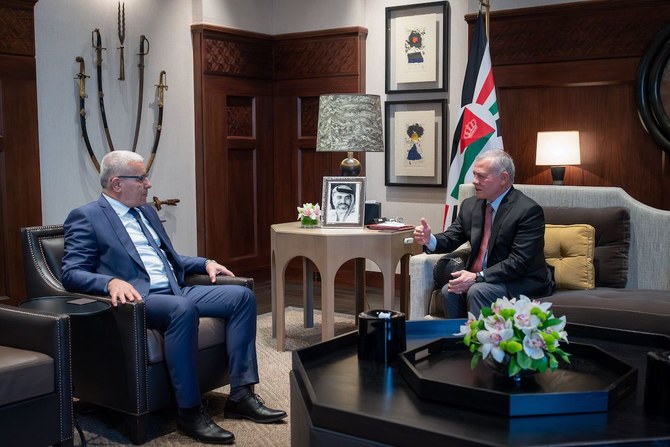AMMAN: Jordan’s King Abdullah on Tuesday met Ibrahim Boughali, president of Algeria’s People’s National Assembly, in Amman, Jordan News Agency reported.
The meeting underscored the longstanding historical ties between the two countries, with King Abdullah expressing a desire to bolster cooperation in various sectors, particularly at the legislative level.
The Jordanian monarch voiced his country’s backing for Algeria’s role as a non-permanent member of the UN Security Council, emphasizing support for Arab initiatives, notably the Palestinian issue, and efforts to uphold global peace and security.
Additionally, King Abdullah praised Algeria’s endeavors to facilitate a ceasefire in Gaza and its provision of humanitarian assistance to the region. He also stressed the urgency of intensifying efforts to implement an immediate ceasefire, safeguard civilians and guarantee the delivery of humanitarian aid.
Boughali later met Abdullah Ensour, acting president of the Jordanian Senate, to discuss cooperation and regional developments.
The meeting touched on the significance of fostering Jordan-Algeria relations, highlighting King Abdullah’s visit to Algiers in 2022 as a crucial step in strengthening ties.
Ensour also commended Algeria for its advocacy for the Palestinian cause, its diplomatic efforts within the African Union, and its role in the recent African summit declaration in Addis Ababa, which called for a ceasefire in Gaza and compliance with the International Court of Justice’s decisions.
During the meeting, Ensour also demanded an independent international investigation into Israeli violations of international humanitarian law.


























